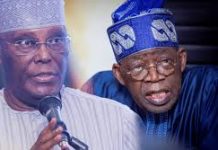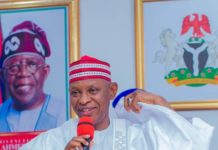Nigeria’s finance minister, Wale Edun, has announced that more than 600,000 households have recently received direct cash transfers from the federal government as part of the resumed payment scheme.
Edun spoke on Thursday at a ministerial press briefing in Abuja titled “Economic Recovery and Growth: Progress and Prospects 2024.”
Raye24reporters reports that President Bola Tinubu had previously halted the conditional cash transfer initiative on July 18, 2023, directing a review.
The program, overseen by the National Social Investment Programme Agency (NSIPA), was paused for six weeks to investigate alleged mismanagement.
During a radio broadcast in Kaduna, Information Minister, Mohammed Idris, confirmed the federal government’s intent to restart these social intervention programs.
At the briefing, Edun emphasized President Tinubu’s dedication to improving the lives of everyday Nigerians through transparent and accountable social welfare efforts.
“Since resuming payments, over 600,000 households have received direct transfers this week alone,” Edun stated, as per a release by Mohammed Manga, the ministry’s director of information and public relations.
Edun highlighted the government’s significant progress in economic reforms, aiming to transform revenue generation in alignment with the 2024 budget.
He also noted the government’s decision to end reliance on the ways and means borrowing system, projecting a budget deficit of 4% for the 2024 fiscal year.
While acknowledging the temporary challenges posed by these reforms, Edun assured that the benefits would soon materialize for Nigerians.
He pointed to the positive outcomes of the government’s economic strategies, such as reduced inflation growth and increased foreign investment compared to last year.
Edun emphasized that one of the government’s immediate priorities is to lower food prices by enhancing local production, a crucial step given the impact of food costs on inflation.
Reflecting on the first half of 2024, Edun expressed optimism about the economy’s recovery trajectory.
He concluded that with ongoing macroeconomic stability, Nigeria is on a path to sustained and inclusive growth, poised to generate jobs, reduce poverty, and attract both domestic and foreign investments that will uplift the general welfare of its citizens.











































